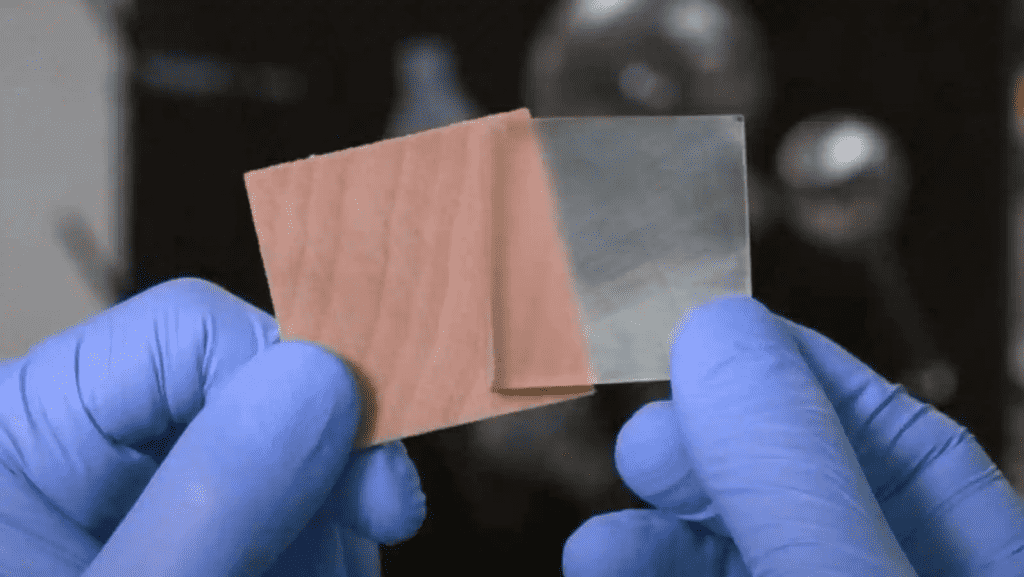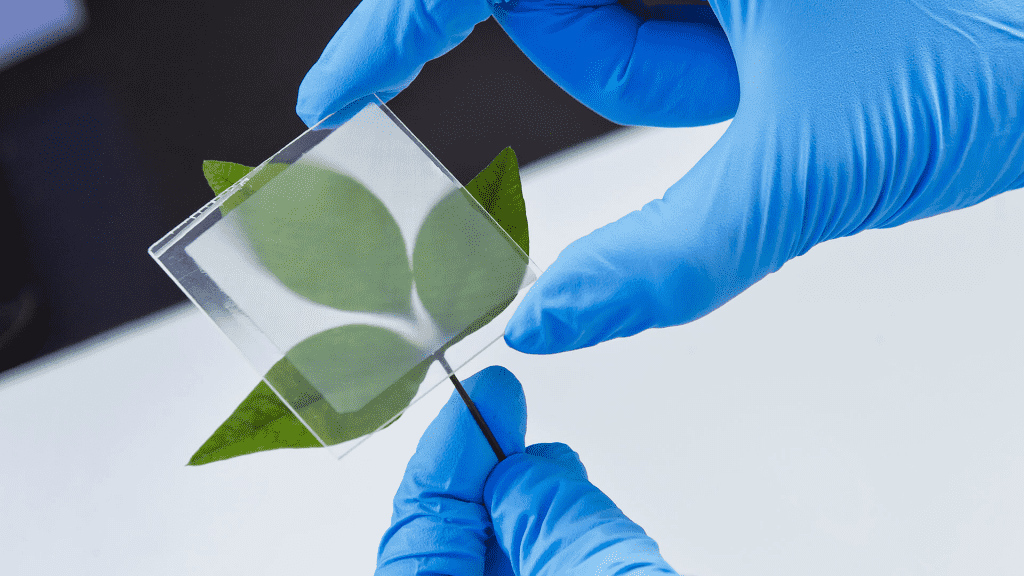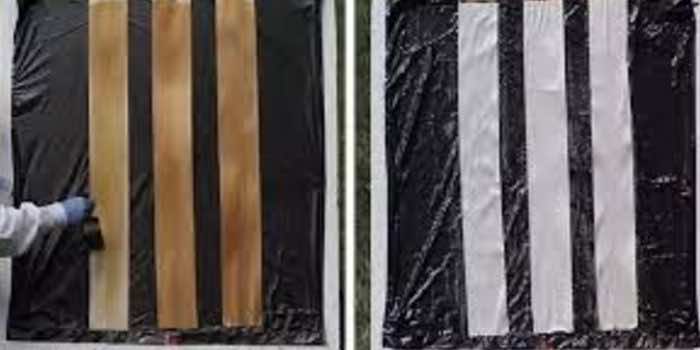Researchers at the Indian Institute of Technology (IIT) have discovered that transparent wood had a massively lower environmental impact and was five times more efficient than glass. This can drastically cut down energy costs.
According to the United Nations Environment Program, 400 million tons of plastic are created annually.
Transparent wood is a substitute for such materials and is highly preferred since it prevents the harm of petroleum-derived plastic products. German scientist Siegfried Fink first manufactured transparent wood in the year 1992, and over the past three decades has been hugely improved by other researchers too.

Wood is opaque by nature. However, researchers have found that removing lignin from the wood can make it transparent. This is done by soaking the wood in a warm solution consisting of multiple chemicals such as sodium hydroxide, sodium sulfite, and sodium hypochlorite. It is then boiled in a hydrogen peroxide solution.
This entirely removes the lignin and turns the wood white. However, the space that was occupied by lignin needs to be filled up to retain the structural strength. This process, called infiltration, is done by using a resin such as epoxy or Poly methyl methacrylate or PMMA under temperatures of 185 Fahrenheit (85oC).
The final product can have as much as 90 transparency and is shatterproof. Also, it is more biodegradable than glass or plastic.
Its applications will range from construction to energy storage, making flexible electronics and packaging.
The researchers at IIT conducted a life-cycle analysis (LCA) of transparent wood to determine the environmental impact of its production and end-of-life (EOL) cycle. The study found that using hydrogen peroxide for delignification, and using epoxy for infiltration was the most eco-friendly.

The approach has “24 percent less global warming potential” and “15 percent less terrestrial acidification” compared to another method that used sodium chlorite for delignification and PMMA for infiltration, the researchers wrote in a paper.
The EOL analysis showed that transparent wood reduced ecological impact to the order of 107 compared to polyethylene.
The research findings were published in the journal Science of The Total Environment.


